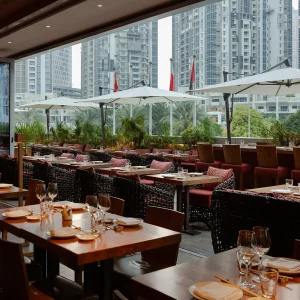The United Arab Emirates (UAE) and Saudi Arabia are set to deepen their cooperation by launching significant joint infrastructure projects. This collaboration marks a major milestone in the relationship between the two Gulf countries, aiming to boost economic growth, enhance connectivity, and strengthen regional development.
Strengthening Bilateral Ties
The partnership between the UAE and Saudi Arabia has grown steadily over the years, with both nations sharing strategic goals. As two of the largest economies in the Middle East, their collaboration on infrastructure projects is expected to drive regional economic integration. The recent discussions have highlighted a mutual commitment to fostering innovation, promoting sustainable development, and creating job opportunities.
The Saudi-Emirati Coordination Council (SECC) has been instrumental in facilitating joint initiatives. Established to strengthen ties between the two nations, the council has streamlined efforts in various sectors, including infrastructure, energy, and trade. Through this framework, both countries aim to implement long-term development plans aligned with their national visions — Saudi Vision 2030 and UAE Vision 2031.

Key Projects on the Horizon

Among the most anticipated projects is the construction of a modern transportation network connecting key cities in both countries. Plans for high-speed railways and expanded road networks will significantly reduce travel time and enhance trade routes. Additionally, cross-border logistics hubs are in the works, further facilitating the seamless flow of goods and services.
The proposed railway line, which is part of the GCC Railway Project, will span over 2,000 kilometers, linking major economic hubs such as Riyadh, Abu Dhabi, and Dubai. This railway network will not only improve passenger travel but also support freight transportation, reducing logistics costs and fostering trade growth.

Energy infrastructure will also see major investments. The two nations are set to collaborate on renewable energy projects, including solar and wind farms, contributing to their net-zero goals. Additionally, advancements in energy storage and transmission will ensure a reliable power supply across the region. The development of hydrogen production plants and carbon capture facilities will further align with both countries’ ambitions to lead in clean energy.
Economic Impact
These infrastructure ventures are projected to generate billions of dollars in investments, providing a considerable boost to local economies. Thousands of jobs will be created, ranging from construction and engineering to technology and management roles. Small and medium-sized enterprises (SMEs) will also benefit from new business opportunities as suppliers and service providers.
Furthermore, tourism is expected to thrive with improved connectivity. Enhanced road and rail networks will make cross-border travel more convenient, encouraging tourism between the two countries and increasing regional tourism revenue. Popular tourist destinations such as Abu Dhabi, Dubai, and Riyadh will see greater visitor influx, contributing to the hospitality and retail sectors.
Investors and financial institutions are also showing heightened interest in the projects. Sovereign wealth funds from both nations, including the Abu Dhabi Investment Authority (ADIA) and the Public Investment Fund (PIF) of Saudi Arabia, are expected to play a critical role in funding these large-scale developments.
Sustainable Development Focus
Both the UAE and Saudi Arabia are committed to incorporating sustainable practices into their infrastructure projects. From eco-friendly building materials to smart city technologies, the initiatives will prioritize environmental responsibility. Additionally, renewable energy integration will contribute to reducing carbon footprints.
The introduction of green building standards and sustainable urban planning will minimize environmental impacts. Initiatives such as water recycling, waste management systems, and energy-efficient designs will ensure that the projects align with international sustainability standards.
Regional Cooperation at Its Best
The strengthened UAE-Saudi collaboration serves as a model for regional cooperation in the Gulf Cooperation Council (GCC). By pooling resources and expertise, the two nations are setting a precedent for achieving large-scale infrastructure advancements.
Beyond infrastructure, this alliance is expected to expand to other sectors, including healthcare, education, and digital transformation. Joint investments in research and development will further enhance the region’s technological capabilities, fostering innovation and knowledge exchange.
Looking Ahead
As the projects move from planning to implementation, stakeholders from both the public and private sectors will play a key role. Regular consultations, joint working groups, and shared investment funds will ensure that goals are met efficiently.
The UAE and Saudi Arabia’s commitment to regional progress and mutual prosperity is clear. Through these ambitious infrastructure projects, they are not only transforming their own landscapes but also paving the way for a more interconnected and prosperous Middle East.
In the coming years, residents, businesses, and investors will witness the tangible results of this collaboration, making the UAE and Saudi Arabia key players in shaping the future of regional infrastructure.
Also read: Why the UAE’s Sustainability Forum Could Change Our Planet’s Future














